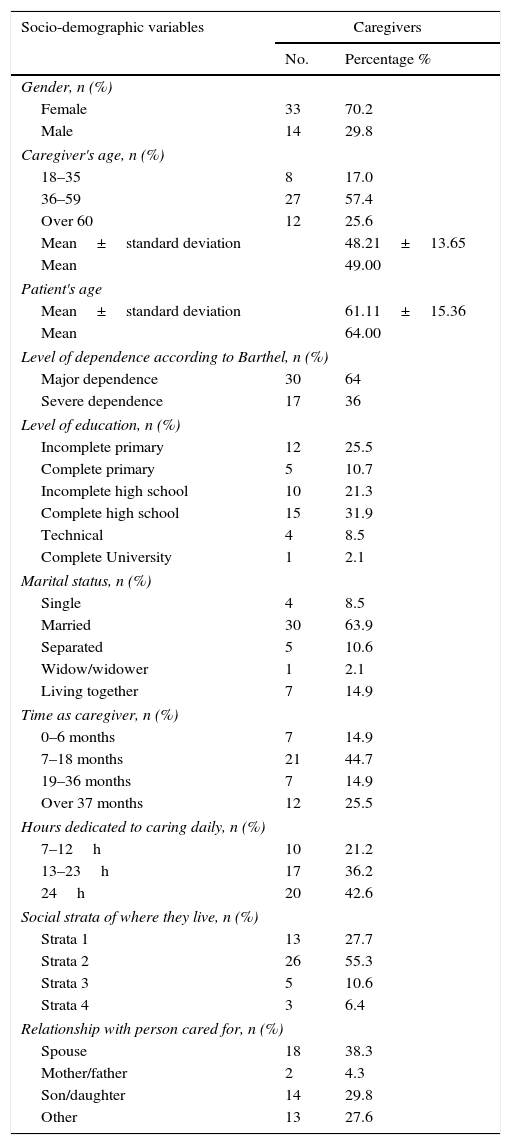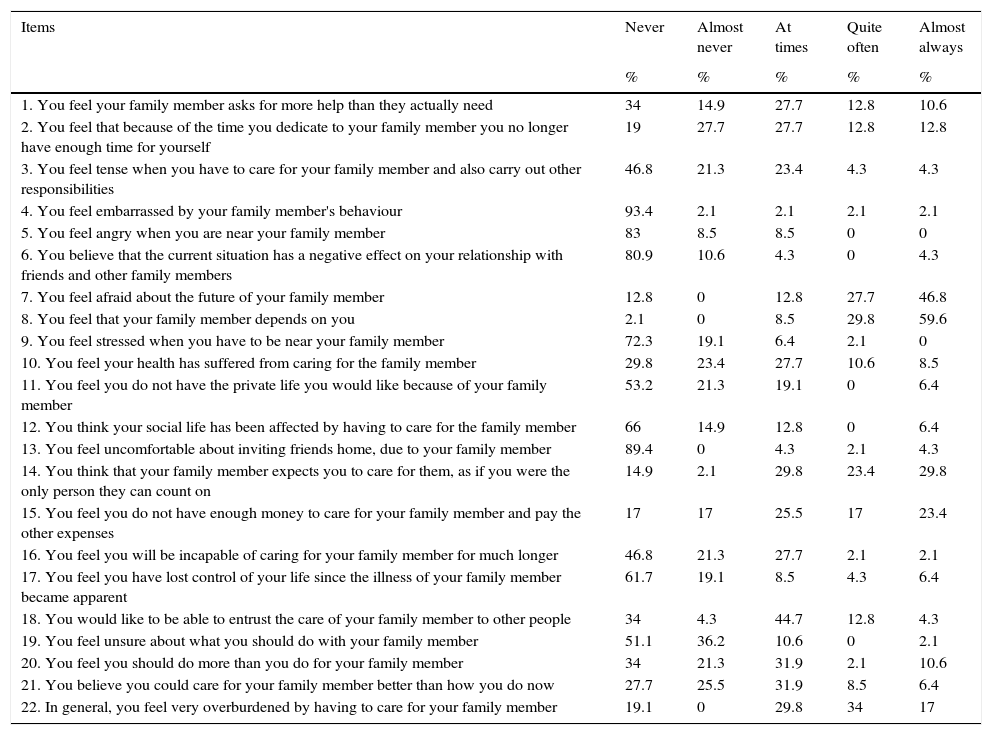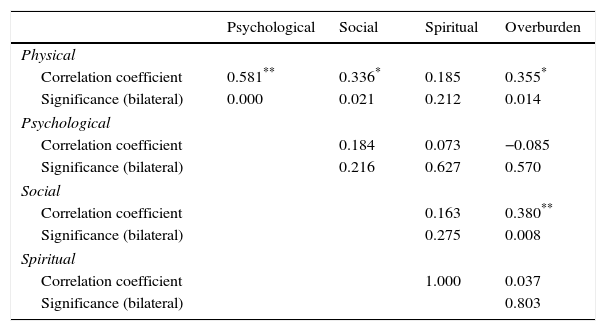People with neurological disorders require family support; therefore, they have to assume the function of taking care of them. The persons that take on the important work of caring and attending the needs of these people have to modify their life, which could be a burden and could affect their quality of life.
AimTo determine the health related quality of life and burden in caregivers of people with neurological disorders.
MethodA descriptive correlational, cross-sectional study was conducted using an intentional sample. The information was collected using 4 different tools: sociodemographic variables, Barthel scale, Betty Ferrell, and Zarit scale.
ResultsA total of 47 caregivers were included, with a mean age of the patient of 61.1 years (SD 15.36). The mean age of the caregiver was 48.21 years (SD 13.65), and were mainly women (70.2%), and the predominant relationship was wife. It was found that the spiritual and social wellness domains of the quality of life were affected. The overall score of the Zarit scale did not show overload (28.86). There was a correlation between the physical, psychological, and social dimensions of the quality of life, but not with the spiritual. There was also a correlation between burden and the physical and social dimensions.
ConclusionsThe caregivers are mainly women, with their quality of life affected in 2 dimensions, and do not show burden. Low correlations were found between the burden and the physical and social dimensions. The aim of health professionals is to offer a comprehensive approach to informal caregivers to mitigate the impact of burden on their quality of life.
Las personas con trastornos neurológicos requieren de apoyo familiar, por lo tanto, deben asumir la función de cuidado; la persona que desempeña la importante labor de cuidar y atender las necesidades de estas personas debe modificar su vida, lo cual puede llevarla a presentar sobrecarga y afectar su calidad de vida.
ObjetivoDeterminar la calidad de vida relacionada con la salud y el grado de sobrecarga en cuidadores de personas con trastornos neurológicos.
MétodoEstudio descriptivo, correlacional, transversal, con una muestra intencional. La información se recolectó mediante 4 instrumentos: caracterización sociodemográfica, escala de Barthel, instrumento Betty Ferrell y escala de Zarit.
ResultadosSe incluyeron 47 cuidadores; la edad promedio del paciente fue de 61,1 años (DE 15,36) y la del cuidador, de 48,21 (DE 13,65). Eran principalmente mujeres (70,2%) y la relación, de esposa. Se encontró afectación en la calidad de vida en el bienestar social y espiritual. La calificación global de la escala de Zarit no reporta sobrecarga (28,86); se encontró correlación entre las dimensiones física, psicológica y social de la calidad de vida, no hay correlación con la espiritual; existe correlación entre la sobrecarga y las dimensiones física y social.
ConclusionesLos cuidadores son principalmente mujeres, con afectación de la calidad de vida en 2 dimensiones y no presentan sobrecarga; se encontraron correlaciones bajas entre la sobrecarga y las dimensiones física y social. La meta de los profesionales de la salud es el abordaje integral de los cuidadores informales para mitigar el impacto de la sobrecarga sobre la calidad de vida.
Article
Diríjase al área privada de socios de la web de la SEDENE, (https://sedene.com/revista-de-sedene/ ) y autentifíquese.








